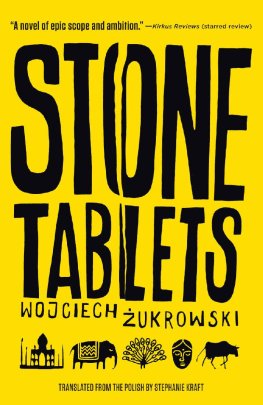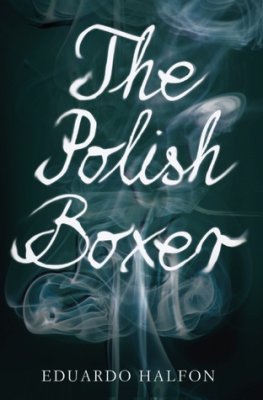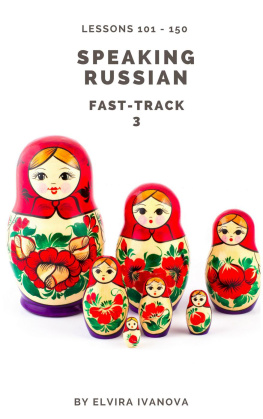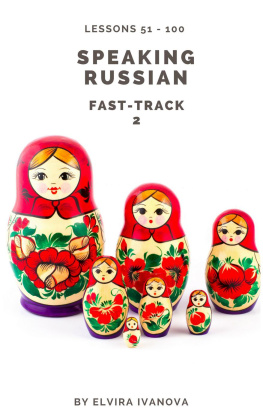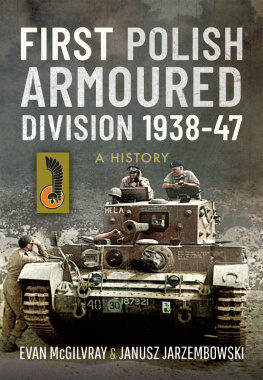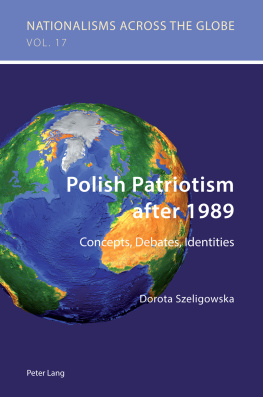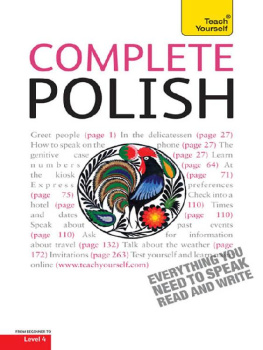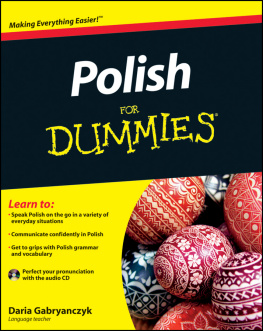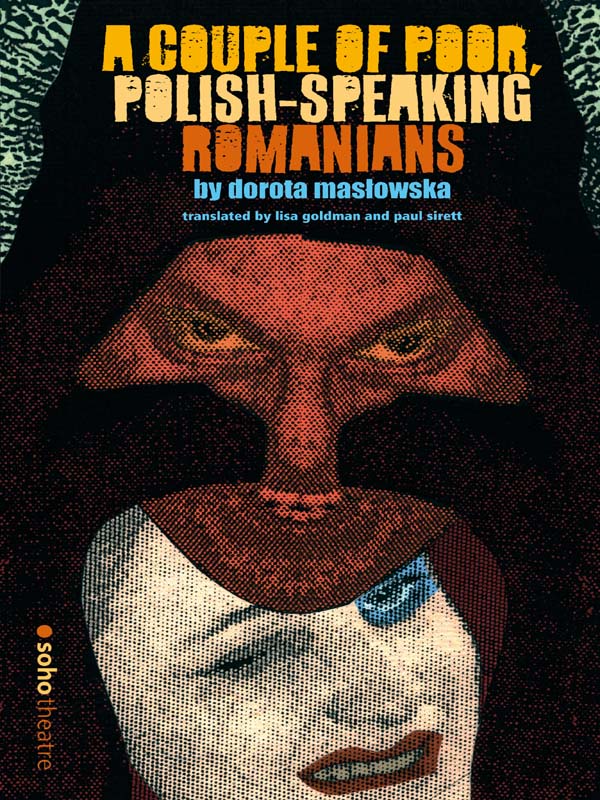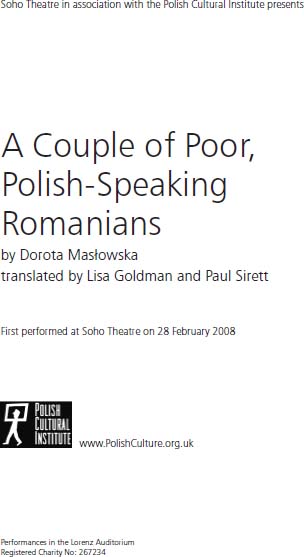
First published as Dwoje biednych Rumunw mwicych po polsku by Lampa i Iskra Boa in 2006.
This translation published in 2008 by Oberon Books Ltd
Electronic edition published in 2013
Oberon Books Ltd
521 Caledonian Road, London N7 9RH
Tel: +44 (0) 20 7607 3637 / Fax: +44 (0) 20 7607 3629
e-mail:
www.oberonbooks.com
Copyright Dorota Masowska 2008
Translation copyright Lisa Goldman and Paul Sirett 2008
Dorota Masowska is hereby identified as author of this play in accordance with section 77 of the Copyright, Designs and Patents Act 1988. The author has asserted her moral rights.
All rights whatsoever in this play are strictly reserved and application for performance etc. should be made before commencement of rehearsal to Monika Regulska at Syndykat Autorw, U1. Garazowa 7, 02-651 Warsaw, Poland. No performance may be given unless a licence has been obtained, and no alterations may be made in the title or the text of the play without the authors prior written consent.
Lisa Goldman and Paul Sirett are hereby identified as authors of this translation in accordance with section 77 of the Copyright, Designs and Patents Act 1988. The authors have asserted their moral rights.
All rights whatsoever in this translation are strictly reserved and application for performance etc. should be made before commencement of rehearsal to Julia Tyrell Management Ltd, 57 Greenham Road, London, N10 1LN and Independent Talent, Oxford House, 76 Oxford Street, London W1D 1BS. No performance may be given unless a licence has been obtained, and no alterations may be made in the title or the text of the translation without the translators prior written consent.
You may not copy, store, distribute, transmit, reproduce or otherwise make available this publication (or any part of it) in any form, or binding or by any means (print, electronic, digital, optical, mechanical, photocopying, recording or otherwise), without the prior written permission of the publisher. Any person who does any unauthorized act in relation to this publication may be liable to criminal prosecution and civil claims for damages.
A catalogue record for this book is available from the British Library.
PB ISBN: 978-1-84002-846-1 / E ISBN: 978-1-7831-9375-2
Cover illustration by Andrzej Klimowski
eBook conversion by Replika Press PVT Ltd, India.
Contents
Writers Foreword
I was 22 when it was proposed to me that I write something for the theatre, but my experience of reading and seeing plays has been not only unsuccessful, but infrequent, and altogether very unpromising. I began from the most surrealist ideas and characters with operetta and futuristic psychologies, but in order to finally write a play, I recreated almost moment by moment an episode of my life from that time, travelling in a car the length and breadth of Poland. At the time I wasnt especially happy and the only thing I remember was a display of petrol stations, disposable places, with plastic cutlery, condoms, false food from a microwave, where the feeling is of being no one and being nowhere, or rather a feeling of being anybody anywhere, and a feeling of being stripped of definition and mask that was realised with a unique sharpness. So Romania in this play is rather not a popular country in south-eastern Europe, but a state of social weightlessness, when suddenly all costumes, props, ideas, definitions and honorary decorations become unverified, and unimportant like tickets.
I know, more or less, what this play meant in Warsaw, I am very interested to find out what it will mean presented in multicultural London where the situation of disguising yourself as someone other becomes the situation of disguising one other as a different other. When we were working on the English version of the play, I realised that the amount lost in translation was not much bigger than that found in translation.
Above all I got to know something about my identity, which is constituted on negation. Instead of saying I am this, you say I am not this, nor this, nor that. You dont say I am a Pole but I am definitely not a Czech and even more definitely not a German. I will explore this subject further. In the meantime Ive started multilayered socio-philosophical explanations about my own text, which is a situation as paranoid as it is embarrassing, so I will end now quickly before you start to think that A Couple of Poor, Polish-Speaking Romanians is simply a story about a boy and a girl, who didnt know what to do with their time or time didnt know what to do with them and the decision as to how it really was I will leave to the people who write press releases for newspapers handed out in the tube and others who like to make decisions like these.
Dorota Masowska
Translators Introduction
We dont yet know how the most recent wave of Polish migrants will influence British culture, but we know from our experience of previous groups of migrants that their influence will be significant. We have all read about the boost to the Catholic church in the UK, but we hear less about the many Polish people more than happy to escape its claustrophobic influence. As with any culture, there is no homogeneity.
Dorota Masowska exemplifies this. At 24 she is the enfant terrible of the Polish literary scene, speaking to a young generation who cant remember communism but who are against capitalism in Poland, with its unemployment and social problems, its often right-wing church and government. A Couple of Poor, Polish-Speaking Romanians reflects these political themes but not in the sociological, literal way of much British theatre. At heart it is a deeply personal play about loneliness, about driving into oblivion.
One of the toughest provocations in the play is the use of the word Romanian. Like many of Dorotas provocations it is uncomfortable. Romanian gypsies arrived in Poland in the early 90s to experience a xenophobic backlash and Dorotas vivid memory of this informs the play, but the Romania that Dorota writes about here is not a literal Romania, it is a social-psychological state, a feeling of being outside the norm of Polish society, of resisting it and being rejected by it.
As an intercultural city, London is very different to Warsaw and the resonance of otherness is also different. Yet resonances there are in the play. Linguistically the play is other too. Dorota is an iconoclast, famous for taking liberties with the Polish language, playing word games and making deliberate mistakes with grammar and structure and street slang. It was tough and exhilarating to translate this blunt, odd, otherness from Polish into English.
Our guiding principal in the translation process was Dorotas zany imagination, her love of nonsense, her dark, ironic take on everything. Sitting and laughing, in Warsaw and London, being creative with words together, in Polish and English slang, this was our way into her puns, rhymes, syntactical gymnastics, idiomatic inventiveness and vulgarity.
No, not that way round, its too normal. Dorota would laugh as we sat discussing a more naturally English way to translate something, then adding with a glint in her eye, I have destroyed Polish and now I destroy the English language too. We have substituted UK slang and puns for Polish ones and made some up as Dorota did. We have translated characters as culturally Polish and linguistically English, we have not changed the setting and unless humour or sense dictated otherwise, we have retained Polish cultural references for example Father Gzregorz from the TV series


